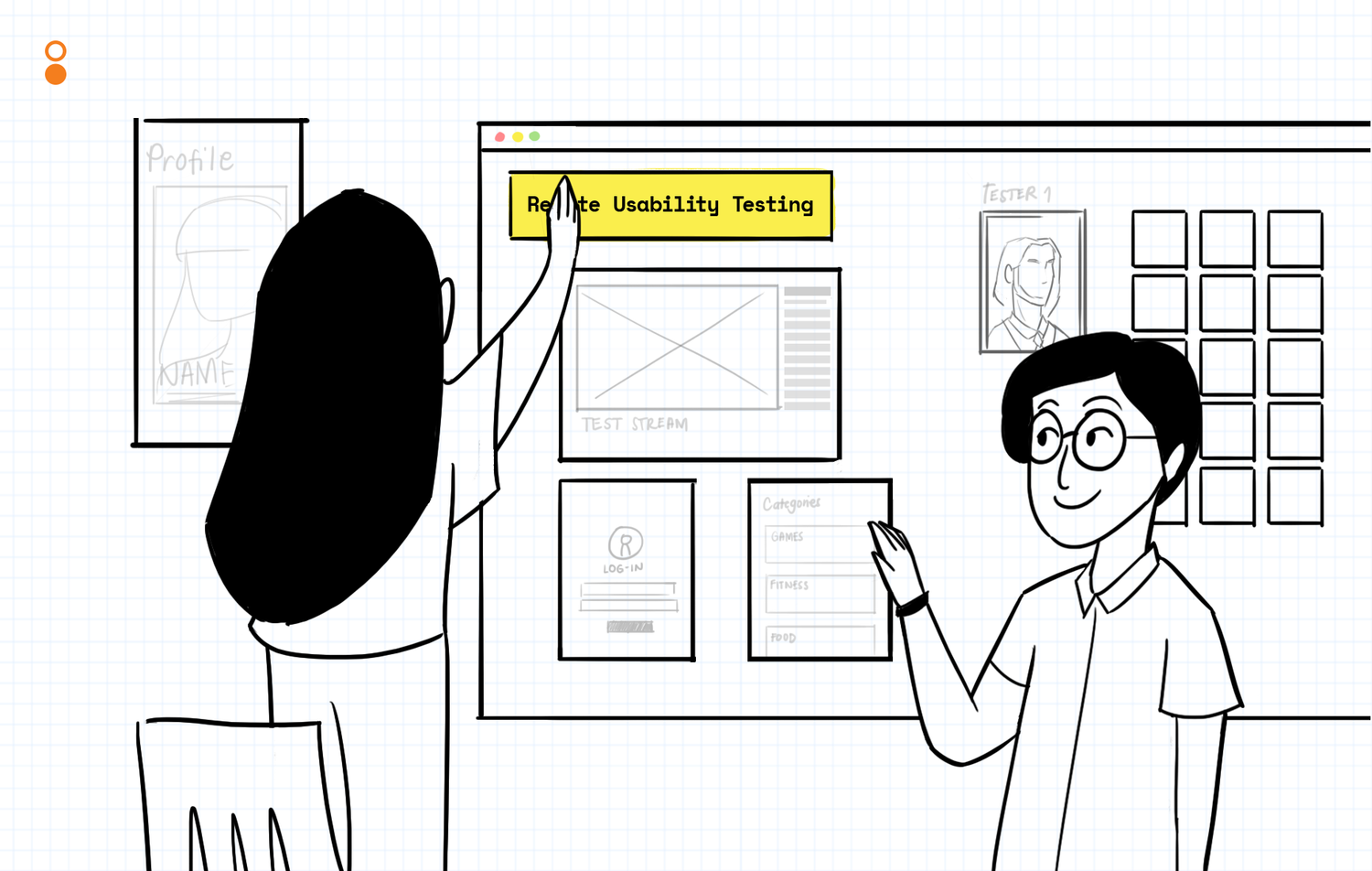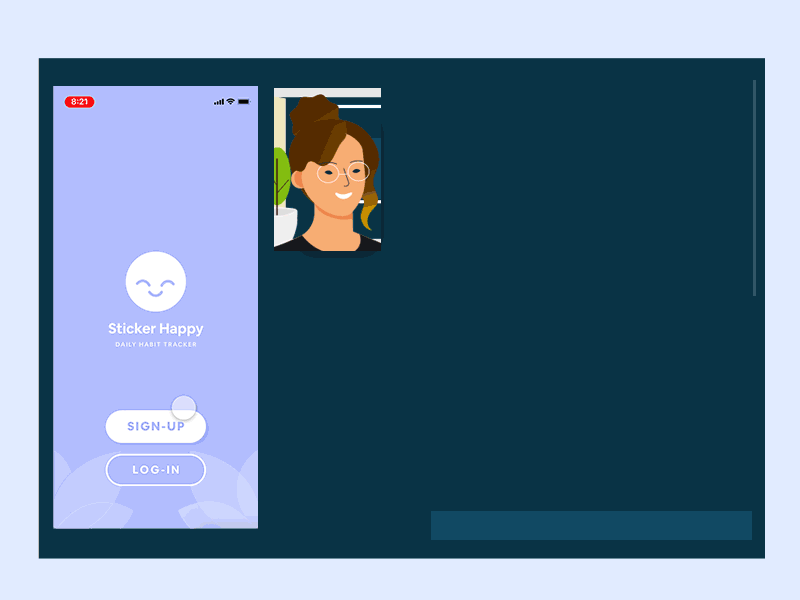
Remote usability tests are like traditional usability tests with one key difference: the participant and facilitator are in two different places.
The participant interacts with the design in his own home and the facilitator watches remotely.
The usability test will be conducted on Lookback, an online platform that allows the facilitator to conduct moderated usability tests on both mobile and desktop devices.
Observers can be invited to watch the usability test happen in real-time so that they see and hear about their customer’s experience for themselves.
Remote testing allows participants to use their own computers, letting the researchers see how they interact with technology that is familiar to them. This insight into how people work with their own machines is valuable.
The remote testing platform allows the observers to send messages to the test facilitator in real-time, allowing them to ask follow-up questions at the end of the testing session.
The quality of the insights will be at par with insights from in-person usability tests. However, there are some limitations:
*Participant reach can be limited by their physical location, especially in South East Asia where access to internet connectivity may vary depending on socio-economic background of the target user persona.
Step 1: Pre-test
Contracts and forms, such as a Non-Disclosure Agreement will be sent to participants prior to the test schedule, so these may be completed, signed, and returned (documents signed and emailed) to the research team in a timely manner.
Step 2: Test Implementation
Remote usability tests will be conducted through the online platform, Lookback.
Through Lookback, test facilitators invite observers (clients) and research participants to join a session.

Step 3: Incentives
Research participants will each receive a remittance after their usability test. They will be required to confirm and sign upon receiving their remittance. An image of proof should be sent through email.
Step 4: Delivery and Turnover
The presentation of the research findings will be through an online meeting platform of the client’s choice.
Upon project completion, copies of the recordings from Lookback will be turned over to the client along with all pertinent documents.
At On-Off Group, we aim to exercise our abilities in creative solution-building, use research methodologies we haven’t used in a while, or just try something new— especially when faced with complex problems.
As we try to move forward during this crisis, we want to keep innovating and continue helping our clients provide the best User Experience to their end-users, while keeping our participants and our researchers safe.